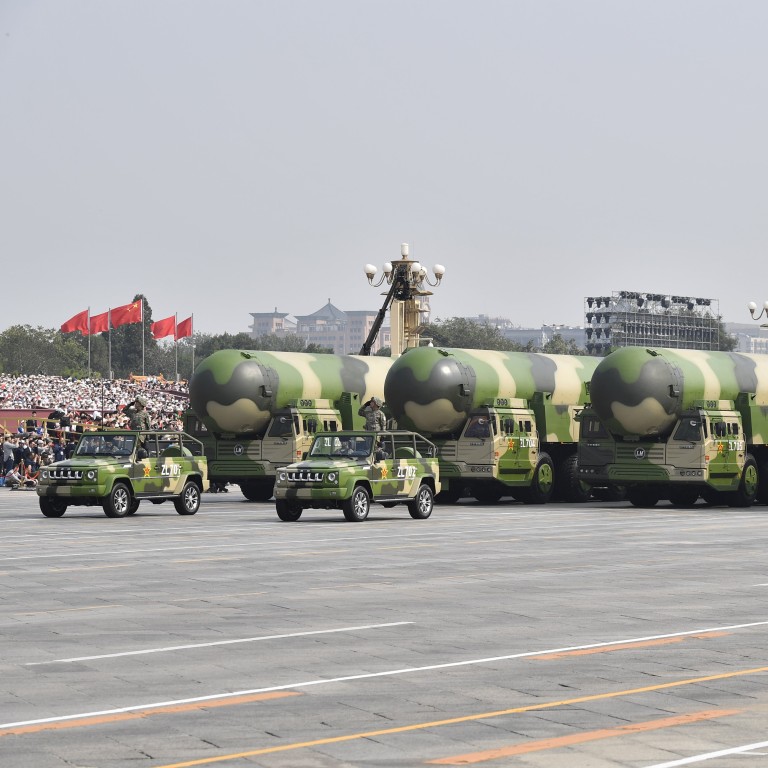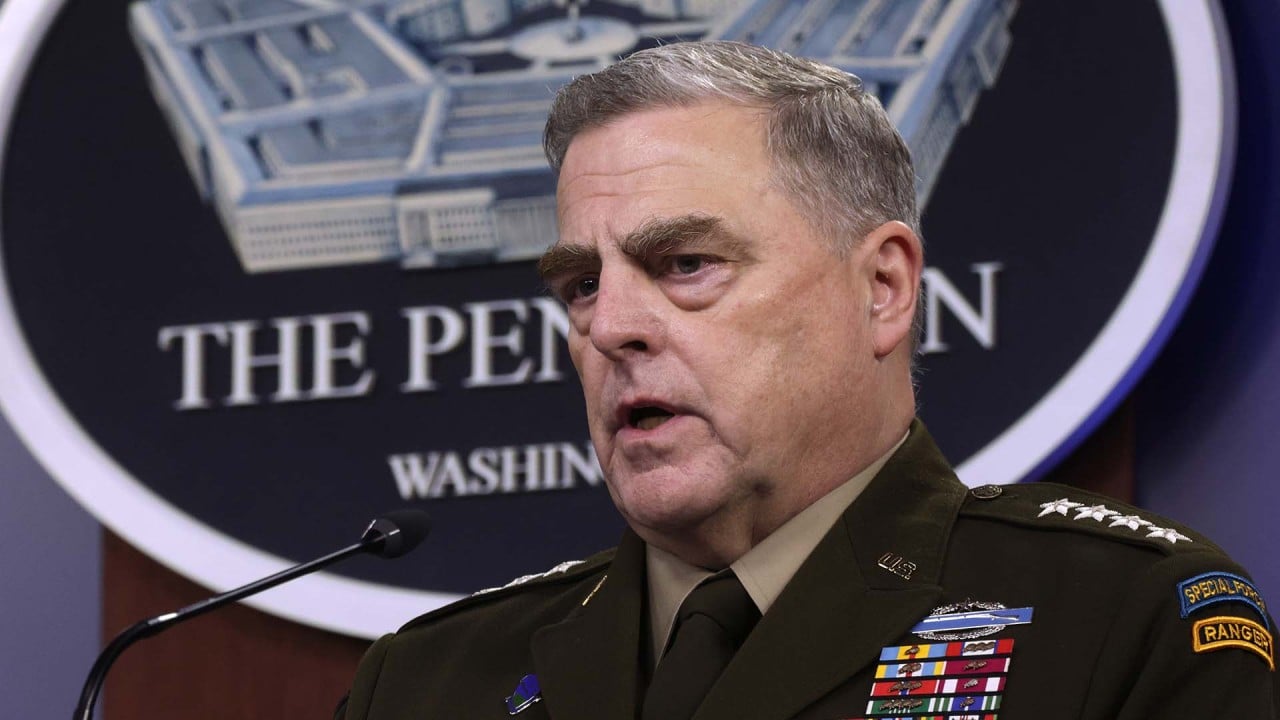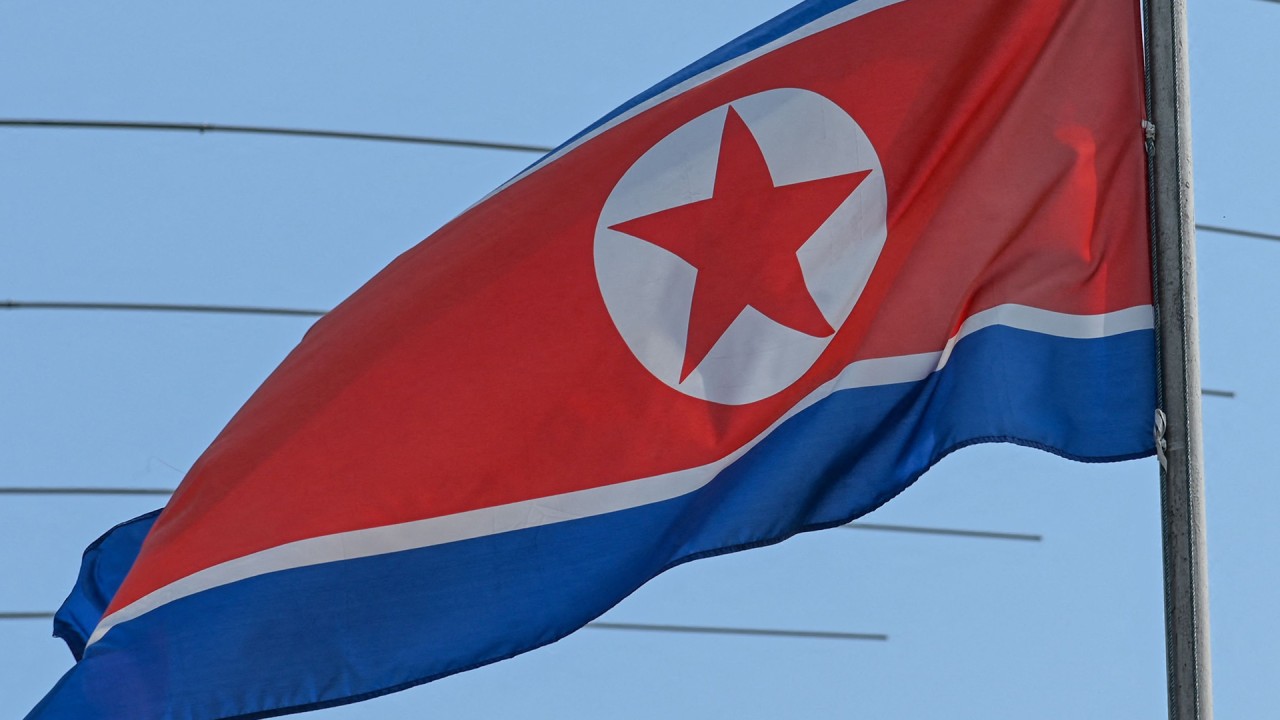
China says it will continue to develop nuclear arsenal and US and Russia must make first cuts
- Beijing was one of the five major nuclear powers to pledge to only use the weapons in self-defence, but says it still needs to modernise its stockpiles
- Senior arms control official Fu Cong denies Pentagon claims it is vastly increasing its firepower and says the country still lags behind Washington
“China will continue to modernise its nuclear arsenal for reliability and safety issues,” Fu Cong, director general of the department of arms control at the Chinese foreign ministry, said on Tuesday.
China ‘pushed for big 5 nuclear nations pledge’ to not target other countries
On Monday the permanent five members of the United Nations Security Council- the United States, China, Russia, Britain and France – published a joint statement reaffirming that “a nuclear war cannot be won and must never be fought”.
The statement also restated the goals of preventing the further spread of such weapons and the ultimate goal of “a world without nuclear weapons”, as stated in the Treaty on the Non-Proliferation of Nuclear Weapons.
The US currently has 3,750 nuclear weapons.
Fu said the “assertions made by the US that China is vastly increasing its nuclear capabilities” are “untrue”, adding: “China has always adopted a no-first use policy and we maintain our nuclear capabilities at the minimal level required for our national security.”
He said Beijing would be happy to join talks on arms controls once the US had reduced its nuclear stockpile “to our level”.
Chinese vice-foreign minister Ma Zhaoxu said the joint statement, issued ahead of a United Nations disarmament conference, would help increase mutual trust.
China says it has hypersonic missiles with heat-seeking tech – years before US
But Zhao Tong, a senior fellow at the Carnegie-Tsinghua Centre for Global Policy in Beijing, said he did not expect the statement to change the nuclear states’ policies.
He said it had been designed to set the tone for the global conference rather than ease current tensions.
“Although the statement talked about the ultimate goal of a world without nuclear weapons, in reality all these countries are still in keen strategic competition,” Zhao said.
“The process of denuclearisation has not only not happened, it has developed the other way round. This means that there is a discrepancy in this joint statement and countries’ actual practises.
“However, now that this statement was issued by top leaders from these five nuclear states, these problems are being evaluated and hopefully can kick off some necessary processes in the government’s bureaucracy.”
Zhou Chenming, a researcher from the Yuan Wang military science and technology institute in Beijing, said the five were unlikely to change their policies.
“The joint statement sets a tone for denuclearisation, but in reality in terms of how it can be carried out, all countries would have their own considerations,” Zhou said.
“In a way, it is a positive sign that the US and Russia are able to agree on such a statement amid rising tensions over Ukraine.”
US satellite could detect Chinese hypersonic missiles, but could it stop them?
Unlike the others, Israel has never formally acknowledged possessing nuclear weapons but the four are the only countries not to have signed the non-proliferation treaty apart from South Sudan, which has been plagued by civil war since independence.
Zhou said other countries had the “potential” to become nuclear powers – ranging from Iran to Japan and some European countries – and warned that “the permanent five do not really have a good way to manage the spread of nuclear weapons at this moment”.
“Much information is dependent on international atomic energy institutions, or through some international agreements to control the use of these weapons,” Zhou added.
“If all these countries can agree to come up with a way of denuclearisation, of course that is ideal, but at this moment I do not see any feasible plan like this coming up.”
Additional reporting by Agence France-Presse



